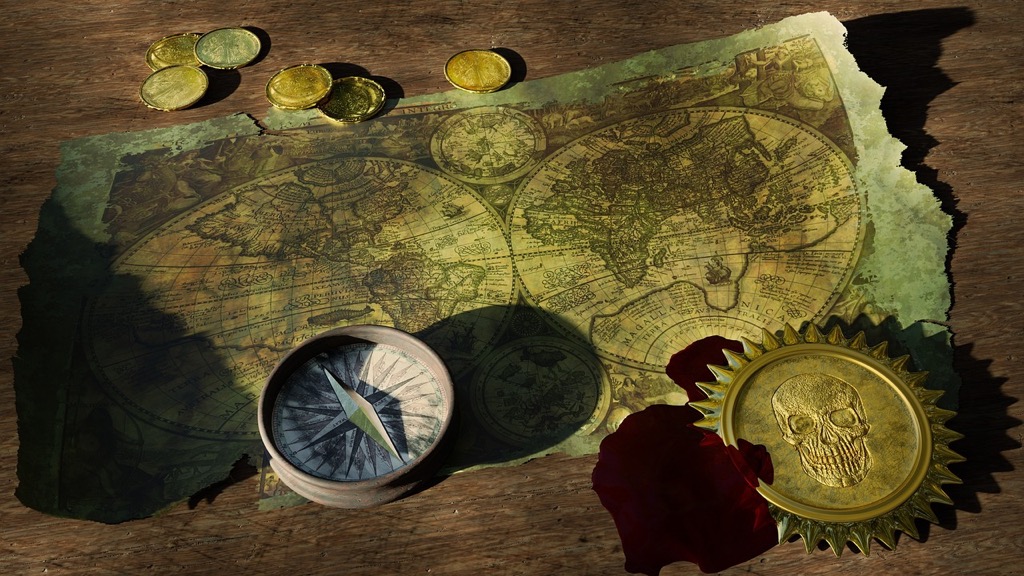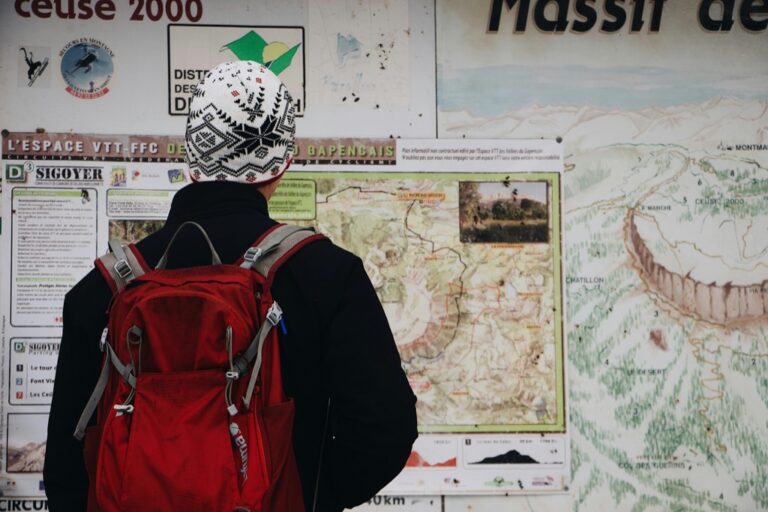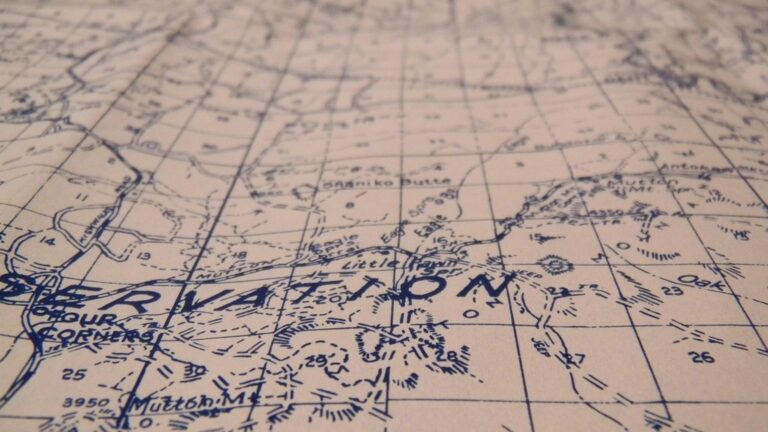10 Best Online Workshops for Improving Cartographic Skills to Enhance Readability
In a world where data visualization is key, honing your cartographic skills can set you apart. Online workshops offer a flexible and interactive way to elevate your mapping abilities, whether you’re a beginner or looking to refine your expertise. Discover the best options available to enhance your proficiency and creativity in cartography.
Disclosure: As an Amazon Associate, this site earns from qualifying purchases. Thank you!
ESRI’s ArcGIS Online Training
You can access a variety of free and paid workshops tailored for different skill levels. Focus areas include data manipulation, web mapping, and advanced visualization techniques. ESRI’s platform is user-friendly and widely recognized in the industry.
Mapbox Training
You’ll find workshops dedicated to mastering Mapbox Studio, including sessions on designing interactive maps and utilizing the Mapbox API. These workshops help you leverage powerful visualization tools to create stunning, data-driven presentations.
Coursera’s Geospatial and Environmental Analysis
You can enroll in comprehensive courses that cover fundamental cartographic concepts while integrating GIS techniques. Courses are taught by university professors, offering a blend of academic rigor and practical application.
Communicate without words in Concept, a game where you convey ideas using universal icons. Its easy-to-learn gameplay and vibrant design provide endless entertainment for all ages.
Udemy: Cartography and Map Design
You may explore hands-on projects in this extensive workshop that focuses on map aesthetics and design principles. With practical exercises, you’ll learn to balance functionality and visual appeal effectively.
LinkedIn Learning: Create Effective Maps
You’ll benefit from courses that emphasize the importance of storytelling through maps. This platform features lessons on choosing the right visual elements and improving reader engagement through effective layout and typography.
The National Geographic Society Workshops
You can participate in specialized workshops focused on geographic storytelling and data representation. These workshops utilize real-world examples to showcase how map design influences audience understanding.
Self-Directed Learning via YouTube Channels
Enjoy YouTube on your TV! Easily stream videos from your phone and quickly search with voice control. Watch in 4K and access personalized recommendations for everyone in the family.
You can enhance your skills using free online resources from channels like “GIS and You” that offer tutorials on various mapping tools and techniques. This option is suitable for learners who prefer a more casual learning pace.
By participating in these workshops, you’ll refine your cartographic skills, discover useful tools, and address common mapping challenges.
Understanding Cartographic Principles
Navigating the world of cartography requires a solid grasp of foundational principles. Understanding these principles can significantly enhance your mapping skills and ensure your maps effectively communicate the intended message.
Key Elements of Effective Maps
Effective maps incorporate essential elements such as title, scale, legend, and labels. Each component serves a distinct purpose:
- Title: Clearly defines the map’s subject.
- Scale: Provides context for distances, ensuring users interpret spatial relationships accurately.
- Legend: Explains symbols and colors, aiding readability.
- Labels: Offer necessary geographical names and data context.
Utilizing tools like ArcGIS Pro can help you integrate these elements seamlessly, enhancing both functionality and aesthetics in your mapping projects.
Importance of Map Design
Map design is crucial for visual communication. A well-designed map improves user engagement and comprehension by balancing clarity and complexity. This involves:
- Color choices: Use contrasting colors to highlight important features, but keep the palette limited to avoid visual noise.
- Typography: Select readable fonts that maintain hierarchy, so crucial information stands out.
Utilizing resources like Adobe Illustrator for map design allows for greater customization and creativity, helping to transform raw data into compelling visual stories.
Exploring Top Online Workshops
Online workshops are an excellent way to enhance your cartographic skills. Here are some top options to consider.
Workshop Option 1: Introduction to Cartography
onGEO-CART by Michigan State University offers a comprehensive 7-week online course that emphasizes creating well-designed maps for various media. You’ll dive into graphic design principles, typography, and visual variables while mastering tools like Adobe Illustrator and ArcGIS Pro through hands-on lab exercises. This course is a part of the Professional GIS Certificate program, making it a solid choice for beginners and intermediate learners.
Workshop Option 2: Advanced GIS Techniques
Advanced GIS Tools & Cartography by University of Aberdeen focuses on advanced techniques in GIS and data visualization. Over this part-time online course, you’ll explore remote sensing, digital mapping, and geospatial data analysis. Expect to gain exposure to cutting-edge geovisualization techniques that enhance your ability to convey complex information visually. This is ideal for those looking to elevate their existing skills in GIS.
Workshop Option 3: Interactive Map Design
Mapbox Training specializes in mastering interactive map design, perfect for creating engaging digital experiences. You’ll learn how to implement various design principles and user-interaction techniques in your mapping projects. The hands-on sessions allow you to develop practical skills while addressing real-world mapping challenges. This workshop caters to all skill levels, ensuring that you can create visually compelling maps.
Evaluating Workshop Content and Delivery
You encounter a common challenge: creating engaging and informative maps that effectively communicate data. The difficulty often lies in not just understanding the data but also in skillfully presenting it.
Establish Technical Context
In the realm of cartography, understanding the principles of data visualization is crucial. You’ll need a solid grasp of projection techniques, scale considerations, and symbolization methods to ensure your maps are both accurate and visually appealing.
Present Key Methods with Examples
Here are some methods to elevate your mapping skills:
- Layering: Use software like QGIS or ArcGIS Pro to manipulate multiple data layers. For instance, overlay demographic information onto geographical features to provide context.
- Symbolization: Apply clear symbols and consistent color schemes. For example, use graduated symbols to represent population density effectively.
Address Common Technical Issues
You might face issues like:
- Data Accuracy: Always verify your data sources. Rely on authoritative sources such as government databases or peer-reviewed studies.
- Resolution: Ensure your map resolution fits your medium. High-resolution outputs are essential for printed maps, while web maps may focus more on load speed.
Explore Data Visualization Options
Consider various visualization approaches:
- Thematic Mapping: Use choropleth maps to provide visual insights into variations within data, like election results across regions.
- Interactive Maps: Leverage tools like Mapbox to create interactive maps that allow users to drill down into data points for deeper insights.
Provide Workflow Frameworks
Organize your mapping projects efficiently:
- Data Collection: Source high-quality data from reliable platforms.
- Data Processing: Utilize tools like Python for data cleaning and preparation.
- Mapping: Use dedicated software (e.g., ArcGIS Pro, Carto) to create your final map.
- Review: Collaborate with peers for feedback and revisions.
- Publish: Choose suitable formats (PDF for prints, HTML for web) based on your audience.
Close with Quality Control Tips
Maintaining high standards throughout your mapping process is vital. Implement QA/QC procedures such as:
- Peer Review: Have colleagues check your data and designs.
- Validation: Ensure data accuracy by cross-referencing with multiple sources.
By adopting these techniques and utilizing the right tools, you’ll improve your cartographic craft and produce maps that not only inform but also engage your audience.
Selecting the Right Workshop for You
Finding the right workshop to enhance your cartographic skills involves several important factors. By considering your skill level and learning goals, you can choose courses that suit your needs and help you grow as a mapmaker.
Identifying Your Skill Level
Assess your current skills in cartography before selecting a workshop. Workshops often cater to various levels:
- Beginners may want to explore basic courses such as “Introduction to Cartography” from Michigan State University, which covers fundamental concepts and tools.
- Intermediate learners might benefit from Esri Academy’s cartography course, diving deeper into 2D and 3D design techniques using ArcGIS Pro.
- Advanced users should look for specialized workshops like “Advanced GIS Techniques” from the University of Aberdeen, which explores complex data visualization methods.
Understanding your skill level helps you select a workshop that challenges you without overwhelming you.
Defining Your Learning Goals
Clarify what you want to achieve through your workshop experience. Are you aimed at improving specific skills or exploring new technologies?
- If you’re keen on interactive maps, consider Mapbox Training, focused on mastering web-based cartographic design.
- For storytelling through maps, check out LinkedIn Learning, which teaches effective cartographic narratives.
- If your goal is data visualization, explore Coursera’s Geospatial and Environmental Analysis courses, balancing academic rigor with practical applications.
By defining your learning goals, you’ll be better positioned to select a workshop that aligns with your aspirations in cartography.
Conclusion
Improving your cartographic skills is a journey that can greatly enhance your data visualization capabilities. By taking advantage of the diverse online workshops available, you can tailor your learning experience to fit your specific needs and skill level.
Whether you’re just starting out or looking to refine your expertise, these workshops provide valuable insights and practical techniques. You’ll not only learn essential principles but also gain hands-on experience with the latest tools and technologies.
Investing in your cartographic education will empower you to create maps that effectively communicate and engage your audience. Embrace this opportunity to elevate your mapping skills and transform your data into compelling visual stories.







